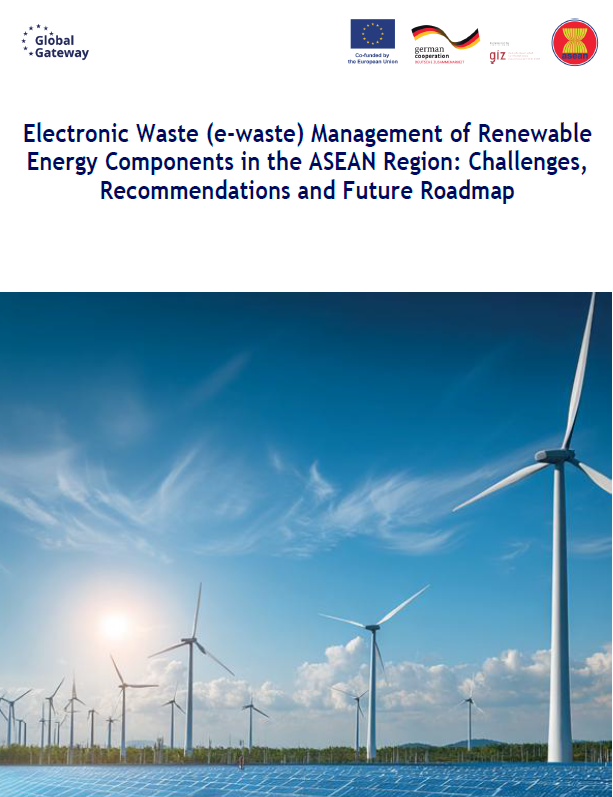Electronic Waste (E-waste) Management of Renewable Energy Components in the ASEAN Region: Challenges, Recommendations, and Future Roadmap is a technical booklet developed under the ASEAN-EU-German Climate Action Programme (CAP) – Energy Component, implemented by The Deutsche Gesellschaft für Internationale Zusammenarbeit (GIZ) GmbH in cooperation with the ASEAN Secretariat’s Energy and Minerals Division (EMD).
As Southeast Asia accelerates its Renewable Energy (RE) transition, the region faces a new sustainability frontier: managing end-of-life solar panels, wind turbine components, and battery systems. This booklet presents an evidence-based analysis of the growing e-waste from RE challenge, combining global lessons with ASEAN-specific data on emerging waste volumes, policy readiness, and circular-economy opportunities.
The booklet calls for coordinated policy frameworks for Extended Producer Responsibility (EPR) and Circular Economy (CE) design, as crucial tools to ensure the RE transition remains both low-carbon and resource-efficient. It also advocates for a Regional Approach to RE E-waste Management to harmonize standards, enhance cross-border collaboration, and attract private-sector investment in recycling industries.
This booklet covers:
- ASEAN trends in solar photovoltaic (PV), wind energy, and battery energy storage systems (BESS) deployment and waste projections.
- Technical insights into material composition of RE components.
- Overview of EPR and CE applications for RE e-waste.
- Regional and policy recommendations for establishing harmonized, future-ready frameworks and recycling infrastructure.
Building on the ASEAN Plan of Action for Energy Cooperation (APAEC) and the Framework for Circular Economy for the ASEAN Economic Community (AEC), this booklet emphasizes that the energy transition and CE must advance together.
By integrating responsible end-of-life management and CE design into ASEAN’s RE growth, the region can achieve a more resilient, low-carbon, and resource-secure future.


